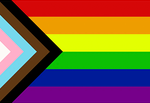History of forced adoptions
If you have seen the Australian television series “Love Child”, or the British movie, “Philomena”, you may have some idea about what we refer to as Forced Adoptions.
In Australia, like elsewhere in the world, it was common practice in the past to remove newborn babies from mothers who “society” deemed to be unfit parents, often based on moral grounds. For instance, babies of unwed mothers were taken at birth and given to childless married couples, sometimes without consent of the mother. In other cases, unethical, dishonest, even illegal, methods were used to obtain consent under duress, deception, manipulation or coercion. In some cases, the mothers’ signatures were even forged on consent documents. These practices were carried out by doctors, nurses, social workers and religious figures. The mother’s family members were often complicit in coercing her into the adoption. Mothers were often sent to institutions for the pregnancy, until the baby was born. The treatment they received at these institutions was often harsh and abusive.
Medical treatment during the birth was often poor, sometimes abusive and sometimes involved drugs being administered against the mother’s will. The separation experience at birth for a mother and her baby was often profoundly traumatic for both of them.
Fathers were generally not allowed to visit the mothers during their stay in the institution, and did not see the babies after they were born. Their input or wishes about the child or adoption were often ignored.
Following the removal of children, mothers were discouraged from speaking about their experiences. Even when they did speak out, they were sometimes not believed or even blamed for what happened. Some mothers may not identify their adoption experience as being ‘forced’, because ultimately they may have made the decision. However, the shame and guilt that society cast on parenting outside of marriage, particularly on unwed mothers, made it an almost impossible choice, especially in the peak period of these practices, up until the mid 1970s.
Forced Adoptions were commonly “closed adoptions” which meant the original birth certificate, if one was issued, was sealed. This was done so the child couldn’t access it or see the original names written on it. These policies were put in place deliberately to prevent parents and children re-connecting.
People who were adopted had very mixed experiences. Many were denied access to any information about their origins. Some felt they were abandoned, others were made to feel they should just be grateful for being adopted. Others were not told that they were adopted, sometimes only finding out as adults.
Some people who were adopted had very positive experiences, which can create different challenges for the mother and/or father if they try to re-connect later in life.
Some ongoing impacts of forced adoptions
We know that the impact on the remainder of their lives varied greatly, for many people impacted by forced adoptions, the personal and psychological impacts extend far beyond the adoption itself, leaving significant potential lifelong consequences.
Mothers
• have a higher likelihood of severe mental disorder and Post Traumatic Stress Disorder
• reported lowered confidence to parent children, often resulting in no further pregnancies
• often had failed relationships with partners, hindering their capacity to create a family after their experience
• reported feeling high levels of shame, and in many cases keeping their experience to themselves for much of their adult lives
• shared that they felt isolated, and confused about wanting to know about their child, despite often being told their child’s life should not be disrupted
• experience trauma relating to reminders of this experience, for example at certain times like birthdays.
People who were adopted
• are more likely to experience mental health disorders, poor wellbeing and higher psychological distress
• are more likely to encounter problems with attachment, identity, abandonment and parenting their own children
• sometimes struggle to find their place of belonging in either family
• reported a need to prove they belong, demonstrate adequacy and validate their existence
• often feel a sense of loss without understanding why (reported after they find out as late discoverers)
• sometimes struggle with bonding and have disrupted attachment experiences as parents.
Fathers
• may experience mental health issues and symptoms of Post Traumatic Stress Disorder
• may have self esteem issues relating to not being able to effect an outcome at the time of the pregnancy and birth
• may have adverse relationships as they struggle to inform their future families about their experience.
Close family members (brothers and sisters, subsequent partners, or subsequent children of the parents or child)
• may experience a sense of loss or other impacts from a traumatised parent or partner
• may wish to find the answers to important questions about their family
• may be significantly impacted by late discovery of adoption.
Further information
Forced Adoption Practices webpage
Forced Adoptions History Project website
Without Consent exhibition information and videos
National Apology for Forced Adoptions
Forced Adoption specific psychologist training
Following one of the recommendations of the Senate Inquiry into forced adoptions, the Australian Psychological Society (APS) was funded to establish a psychologist training program, specifically to give more appropriate and targeted support to people impacted by forced adoptions.




